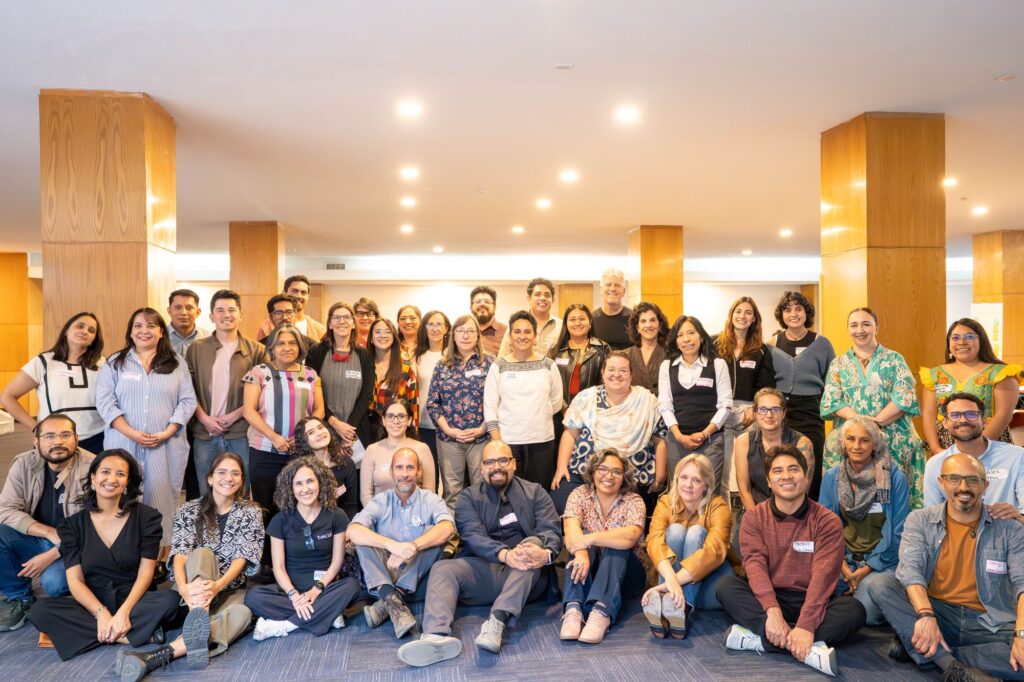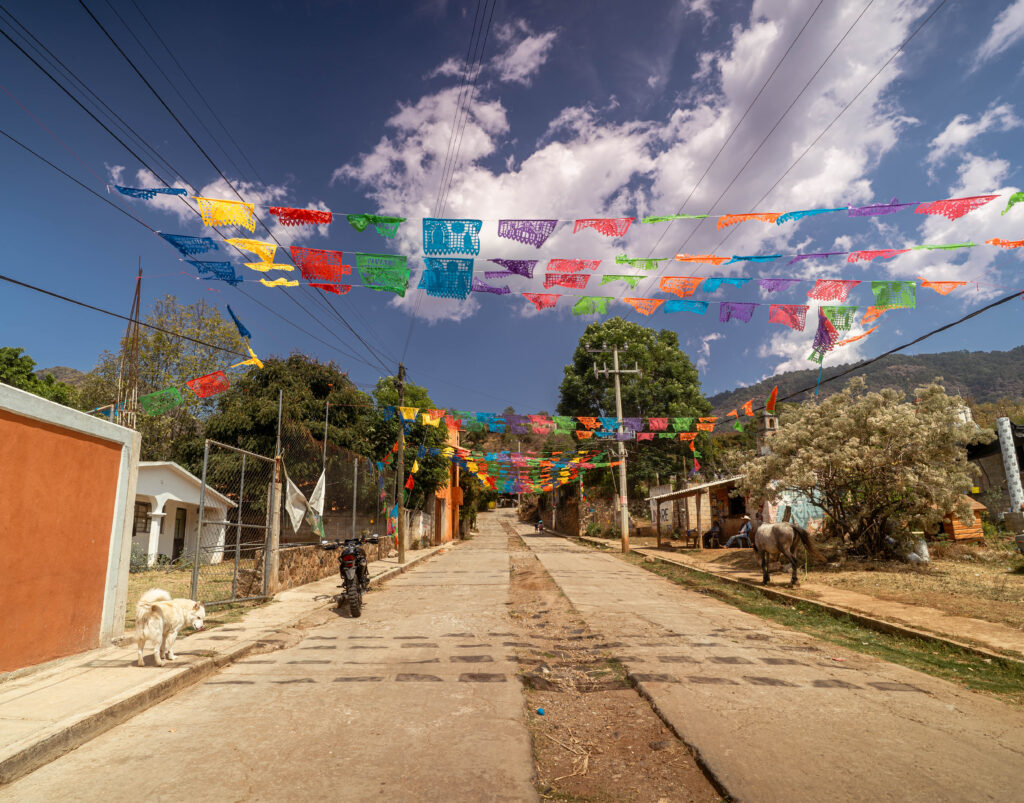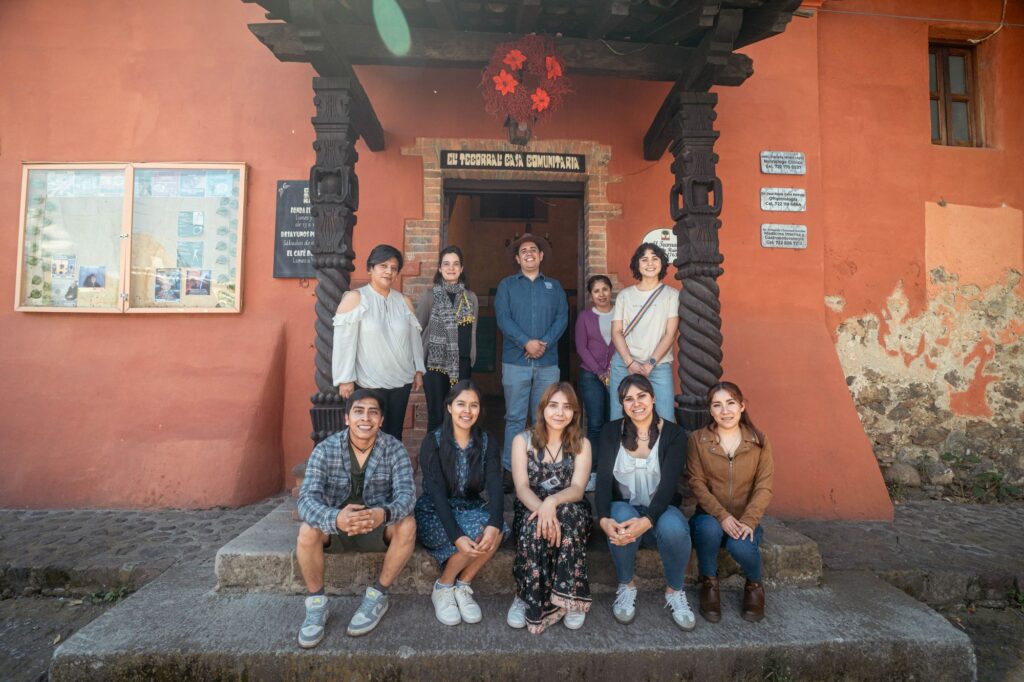The central role of community philanthropy in fostering local collaboration and responses.

Participants of the Encuentro Arrecife 2025 gathered to promote community-led socio-environmental solutions. (Photo: Alejandro Mejía/FASOL)
On February 27 and 28, 2025, the Arrecife 2025 Meeting (Encuentro Arrecife 2025) took place in Mexico, uniting funds and foundations committed to community philanthropy. Promoted by various organizations, including Fondo Acción Solidaria A.C. (FASOL), a Mexican fund member of Alianza, this event became a platform for reflection and discussion addressing the connection between the global agenda and local action, showcasing the indispensable role of community funds in strengthening community-led socio-environmental solutions.
Carmen Genis Gómez, Coordinator of Advocacy and Engagement at FASOL, participated in the panel “Contributions of Community Philanthropy from the Local Level to Major Global Agenda Topics,” where she emphasized the importance of increasing the visibility of local initiatives and the need to strengthen communities’ autonomy in managing resources and solutions for socio-environmental challenges.
Arrecife is a Mexican alliance that brings together corporate and family foundations and thematic funds to strengthen community philanthropy and foster collaboration among various actors in the ecosystem. For Carmen, collaboration among local organizations, supporting organizations, social investors, grassroots groups, and communities should be at the heart of a philanthropy that responds to current challenges:
“We have arrived at a time when social, climate, economic, and political crises converge, creating an adverse landscape. In the face of this reality, we recognize that we must reinvent ourselves: through creativity and reflection, we will be able to propose new social structures. Philanthropy is one of these structures that we must revisit. It is essential to rethink our role in the global philanthropic ecosystem, putting collaboration with different actors at the center.”
“What we propose from Mexico is a philanthropy that can see and recognize all these actors, weaving networks and horizontal collaborative spaces where every contribution matters as much as, or more than, financial resources because, without this social fabric, without the organization we are part of, no change will be possible,” she reflects.
Socio-Environmental Justice and Experiences from Member Funds
One key aspect that links community philanthropy and socio-environmental justice is the recognition of local communities as decision-makers. This involves acknowledging their knowledge and leadership in shaping their own futures. Furthermore, the fair redistribution of resources is crucial for addressing environmental and social inequalities.
Both community philanthropy and socio-environmental justice seek to confront historical inequalities, such as environmental racism and the marginalization of Indigenous peoples, while also striving for systemic transformation. This transformation aims to address the root causes of inequalities and create more sustainable and inclusive development models.
The connection between community philanthropy and socio-environmental justice is reflected in the practices of Alianza’s member funds. Examples of this approach can be seen in the Rural Community Project Bank (Banco de Proyectos Comunitarios Rurales) in Argentina, an initiative led by the fund Red Comunidades Rurales. This project began during the COVID-19 pandemic when communities faced challenges such as isolation and lack of connectivity.
The bank was structured around three main pillars: mobilization of financial and non-financial resources, direct support for community projects, and learning communities for knowledge sharing. With democratic and representative governance involving leaders from various ecoregions, the bank supported 55 projects and benefited over 20,000 people, underscoring the importance of equity and local perspectives in strengthening rural communities’ identity and capacity.
In Colombia, the Fondo Emerger embodies community philanthropy through its approach to engaging with the communities it seeks to support. Unlike traditional philanthropic practices that often impose external models and disregard local realities, the fund prioritizes local resources and self-management in its calls for proposals, fostering peer learning and exchanges. The fund establishes horizontal and collaborative relationships based on principles of trust, valuing local knowledge, and community empowerment. As a result, Emerger is seen as a true partner in the local landscape, breaking dependency relationships.
In Bolivia, the Semilla Socio-Environmental Fund (Fundación Socioambiental Semilla) works with Indigenous organizations and marginalized groups, offering support based on horizontal relationships, trust, and flexibility. Their approach includes open calls for proposals, allowing communities to present solutions rooted in their own needs and realities without imposing pre-defined models. Additionally, the fund provides continuous support, both administratively and in monitoring initiatives, ensuring constant knowledge exchange and connections with other organizations. Semilla strengthens the autonomy of supported communities and amplifies the reach of their initiatives by fostering a collaborative network.
Field Visit: Connecting with Communities

On February 24, Juliana Tinoco, Executive Coordinator of Alianza, participated in a field visit to the Fundación Comunitaria Malinalco (FCM) initiatives in the State of Mexico. Accompanied by representatives from FASOL, she was welcomed by the FCM team, who presented their facilities and shared their work in environmental advocacy and community strengthening.
FCM is a territorial ally of FASOL, playing a fundamental role in maintaining direct connections with local communities. These alliances are continuously established to ensure that collaboration between organizations is deeply rooted in local realities and emerging needs.
The delegation also met with the Brigada Comunitaria Tlecuilco, a group of local residents who voluntarily and self-manage efforts to prevent and combat wildfires. Supported by FCM and funded by FASOL, the brigade serves as a concrete example of how community philanthropy strengthens local resilience, enabling communities to develop their own solutions to the environmental challenges they face daily.
“Fundación Comunitaria Malinalco is an excellent example of the importance of these institutions, which are dedicated to fostering civic engagement by mobilizing local actors and addressing the needs of these communities,” says Tinoco. “Through partnerships, community foundations and local funds form a strengthening chain that enables communities to develop their priority actions,” she reflects.

The support from FASOL and the participation of Alianza in the Arrecife 2025 Meeting reaffirm our commitment to building a funding model that not only supports but also respects and values community leadership. Amidst interconnected crises—ecological, climatic, social, and political—community philanthropy becomes not just a response to these adversities but a pathway to decentralizing power and resources. Strengthening local organizations and collectives drives profound transformation in power structures, contributing to a fairer and more sustainable future.
What we learn from community philanthropy—with its values of collectivity, accountability, and resource-sharing for the common good—is that in times of crisis, collective action becomes essential.

